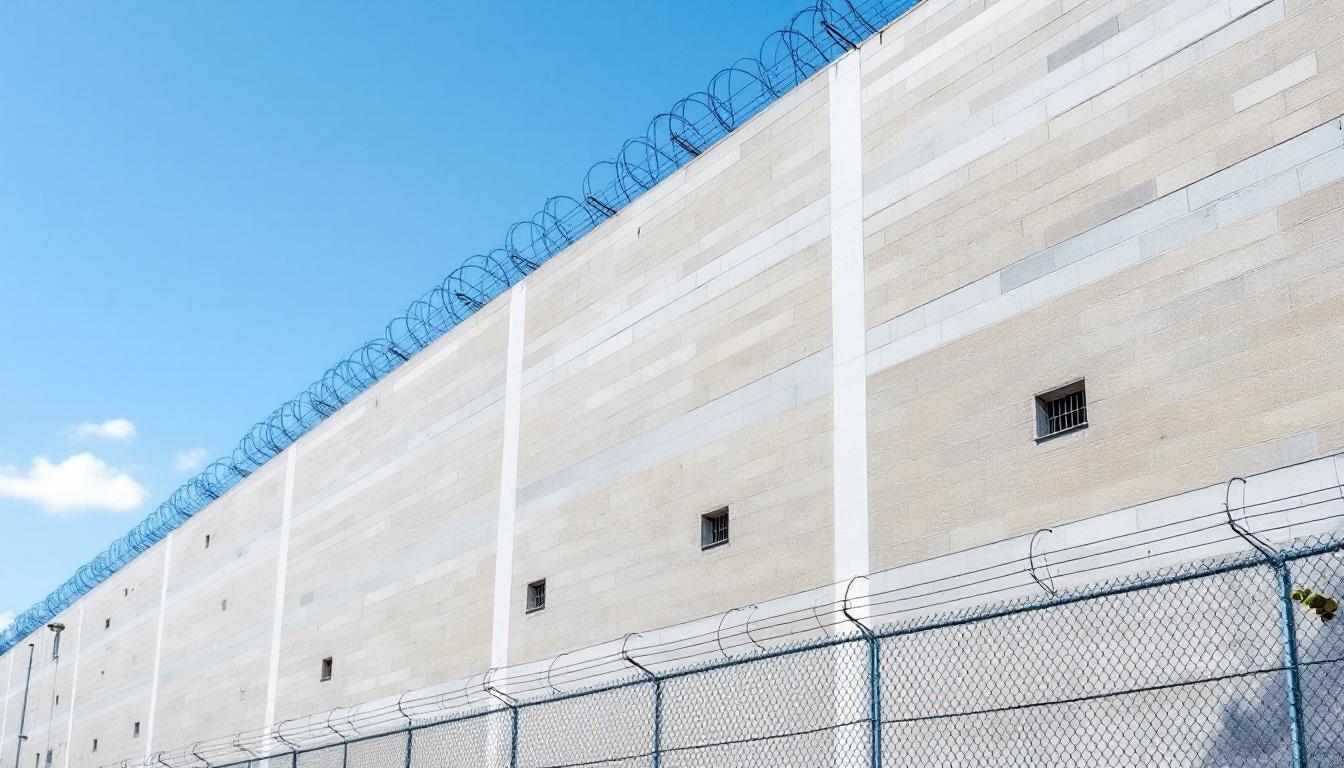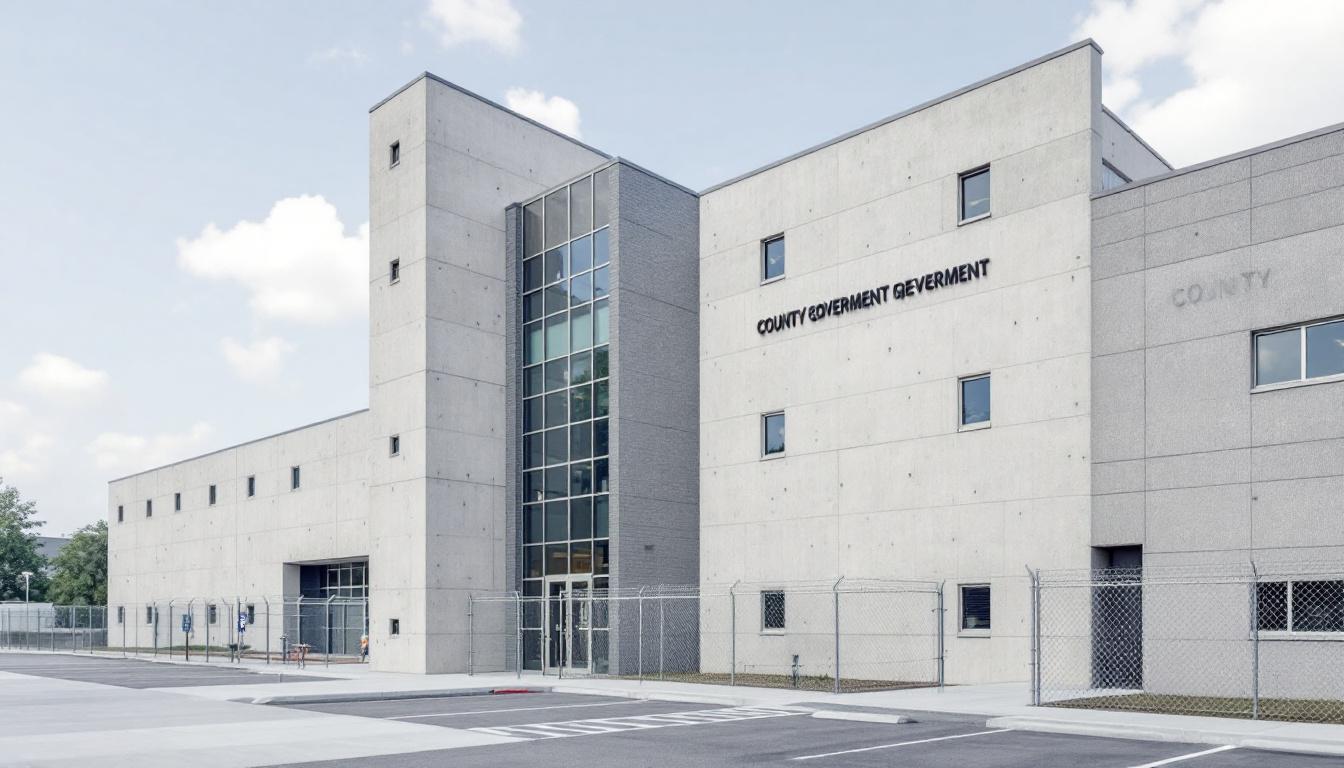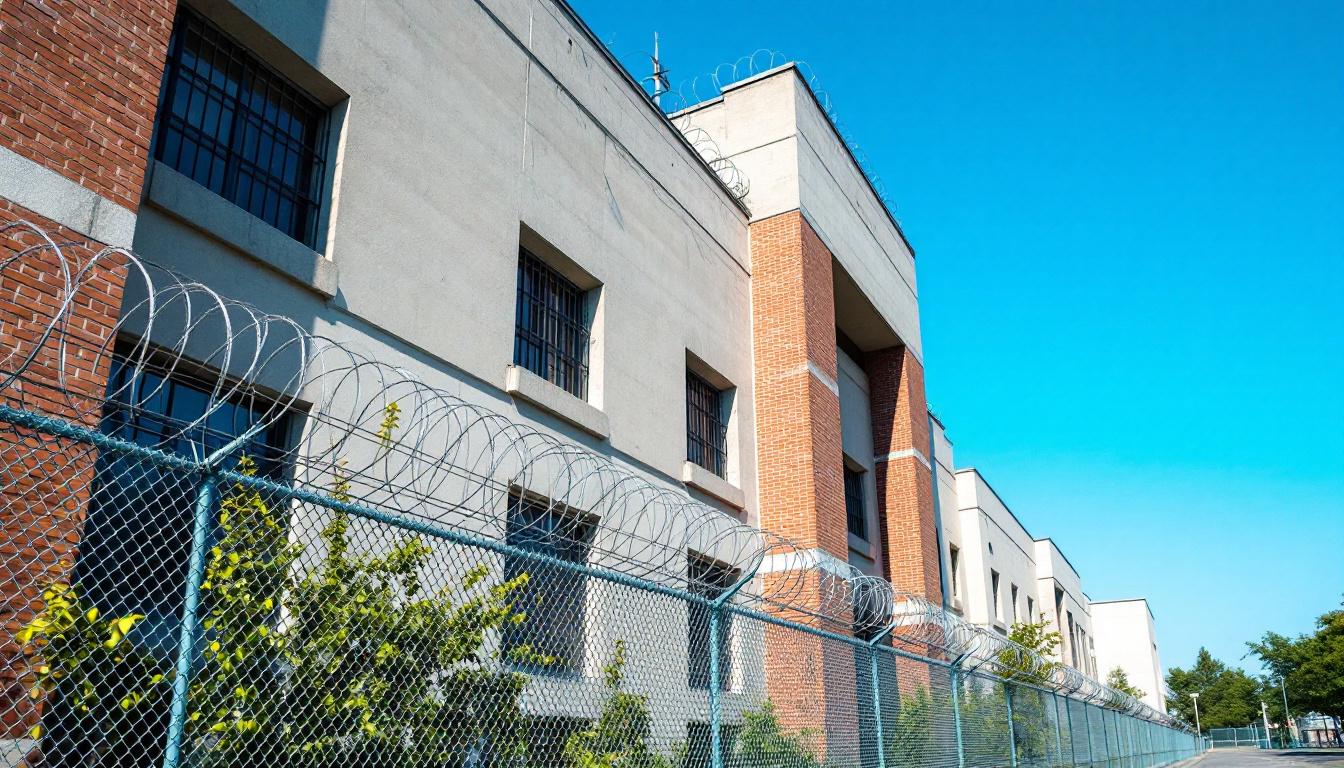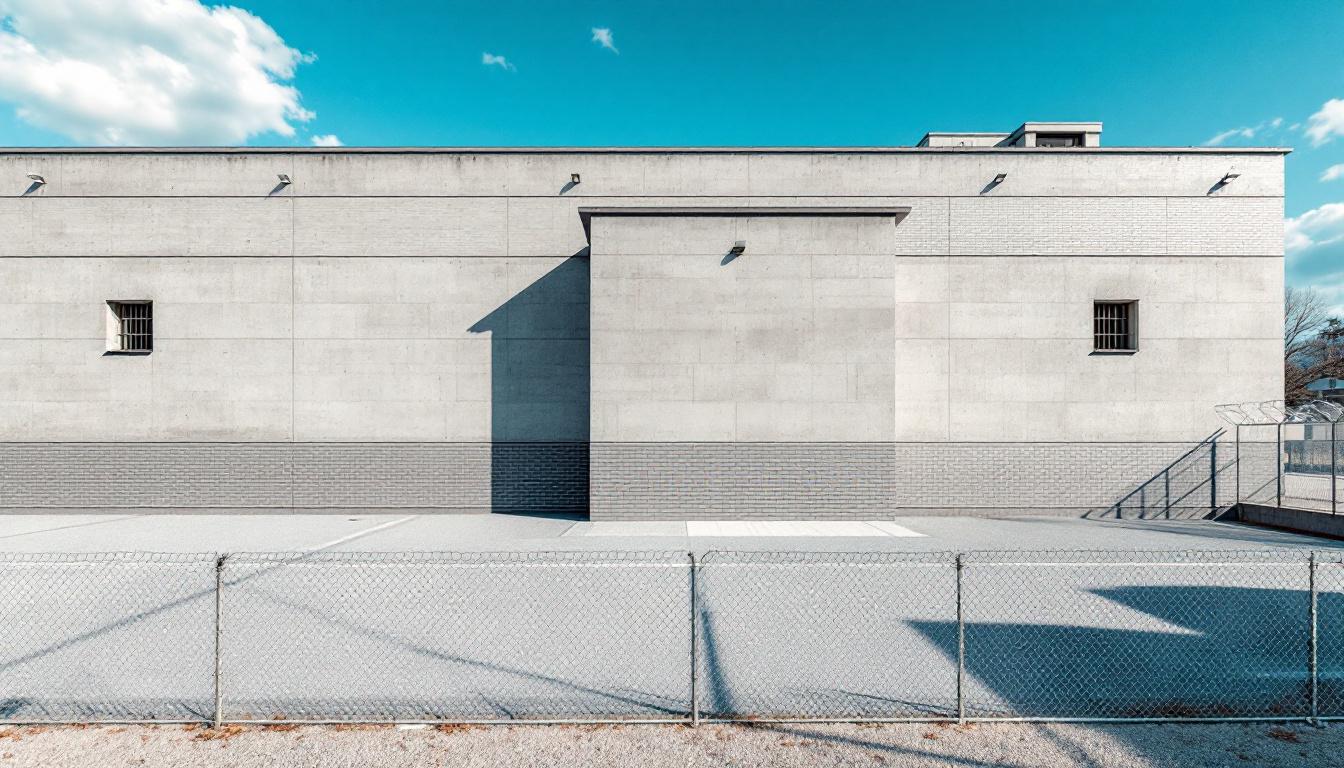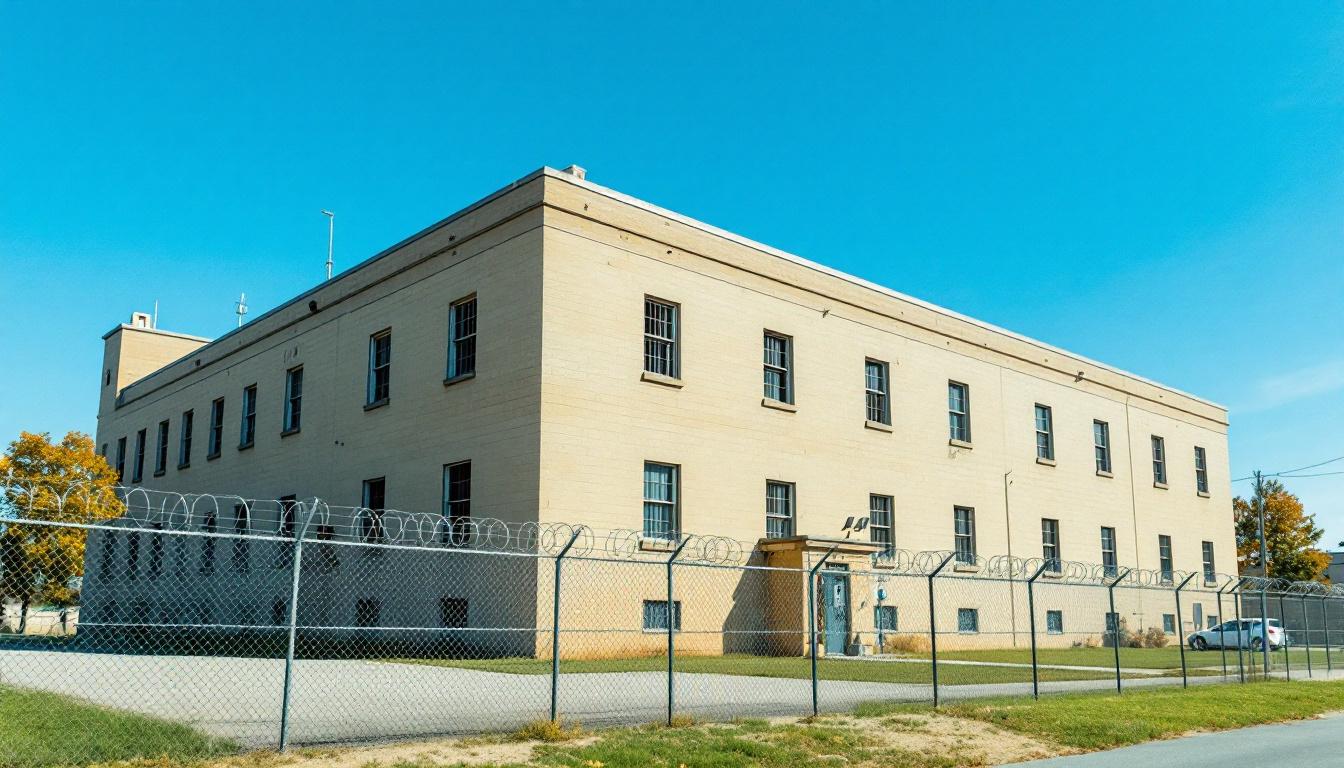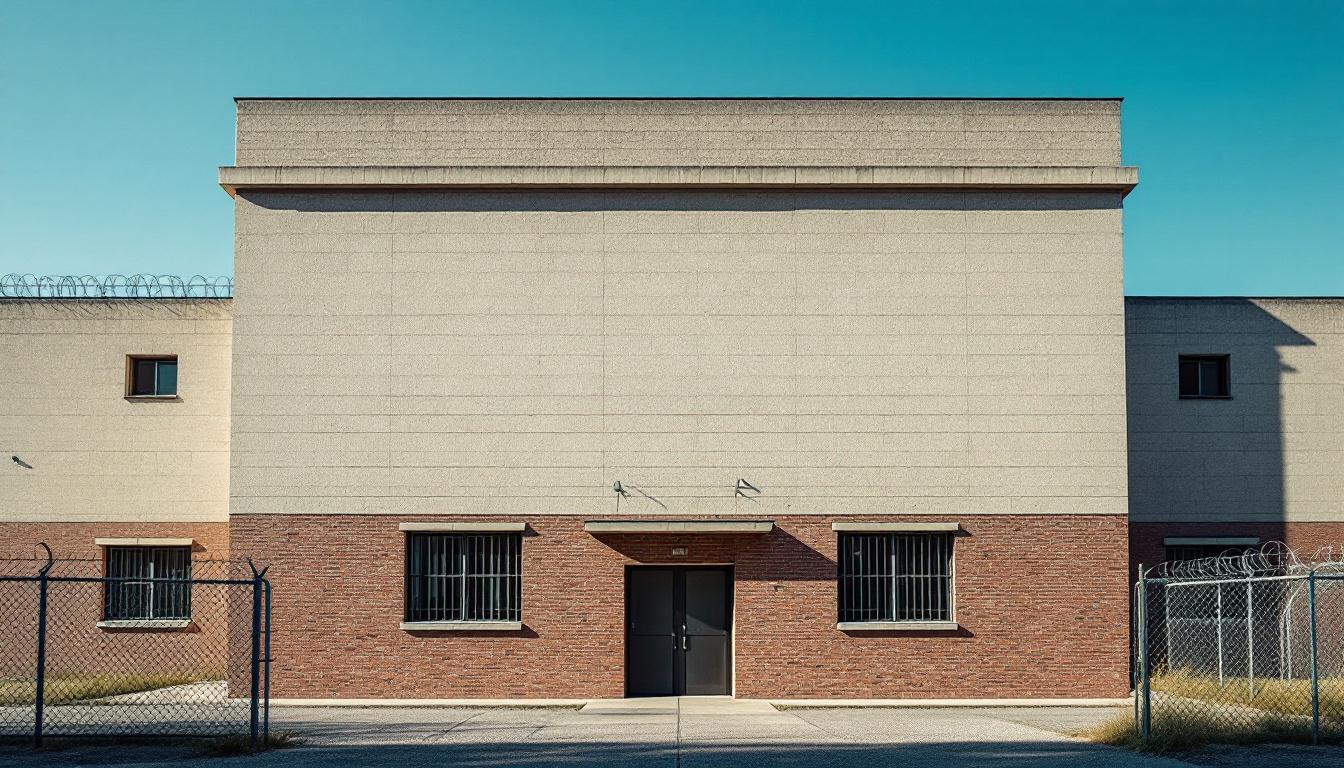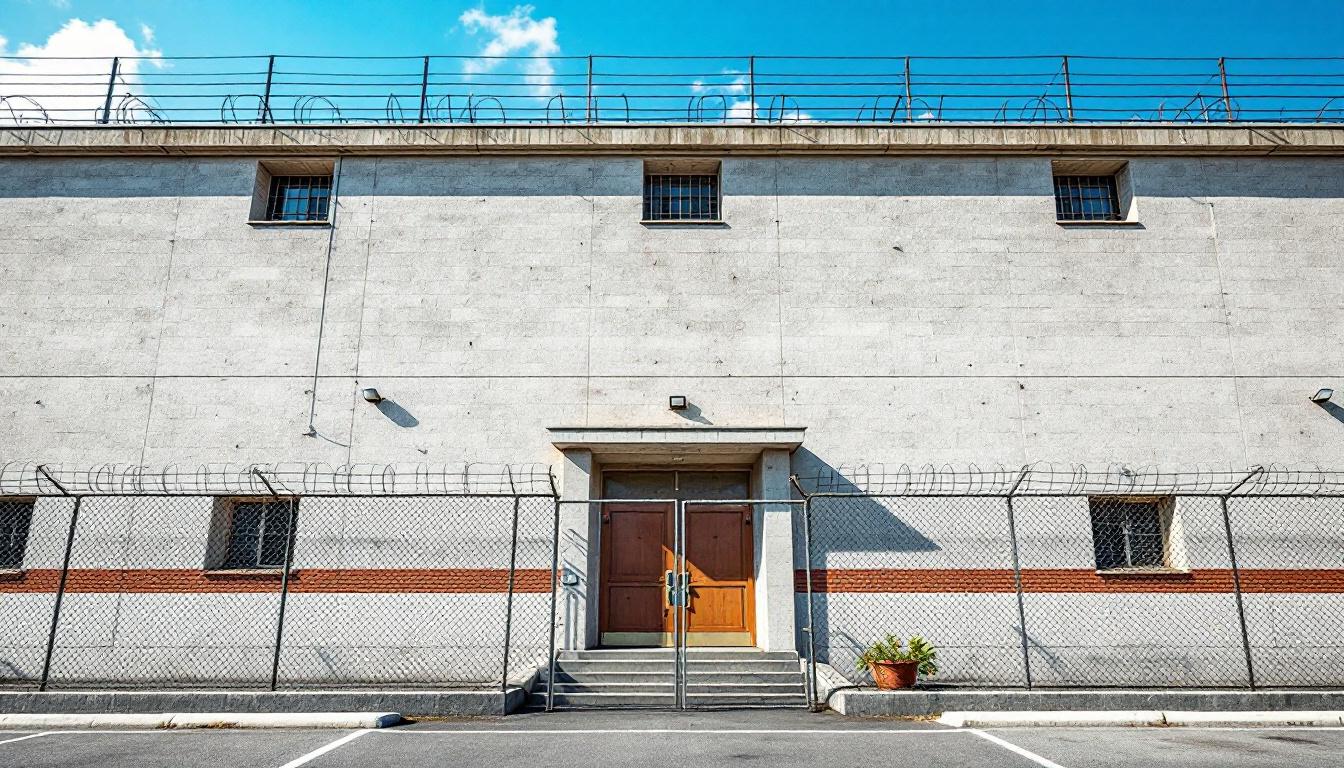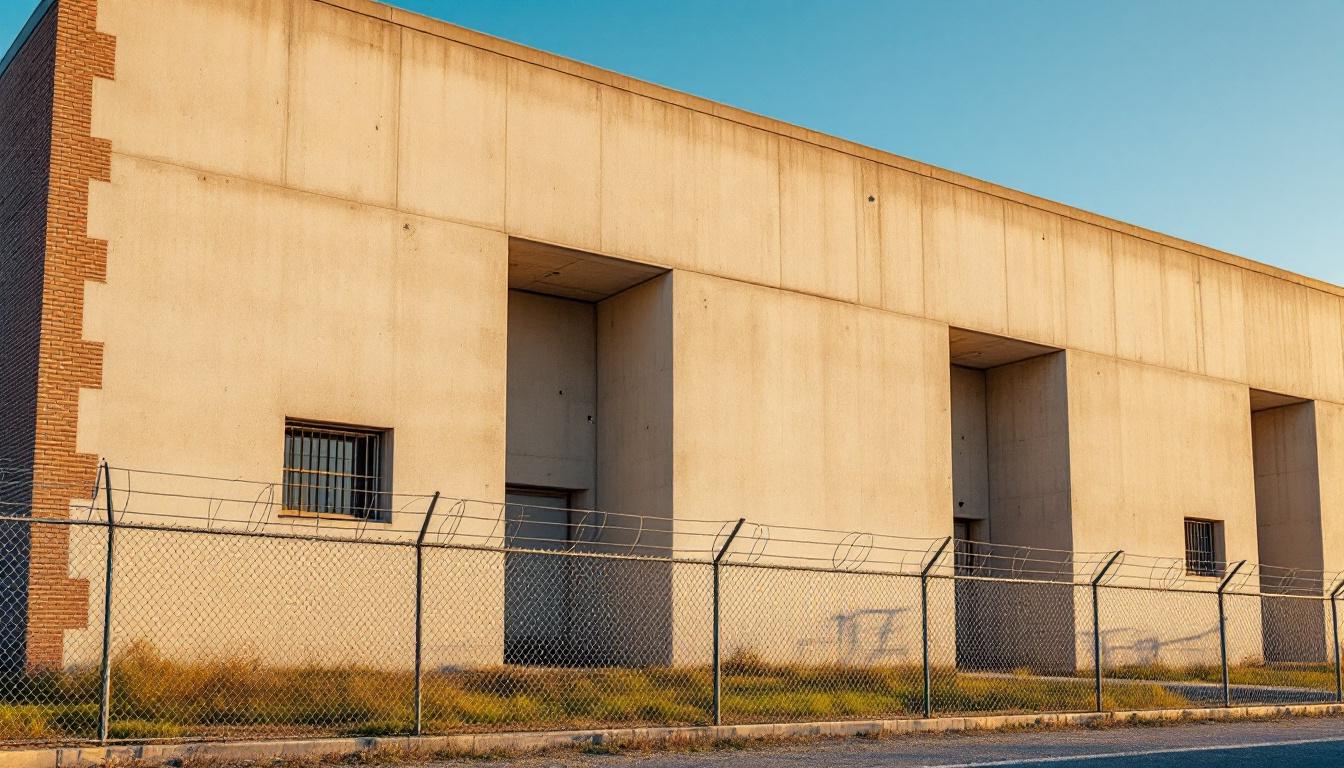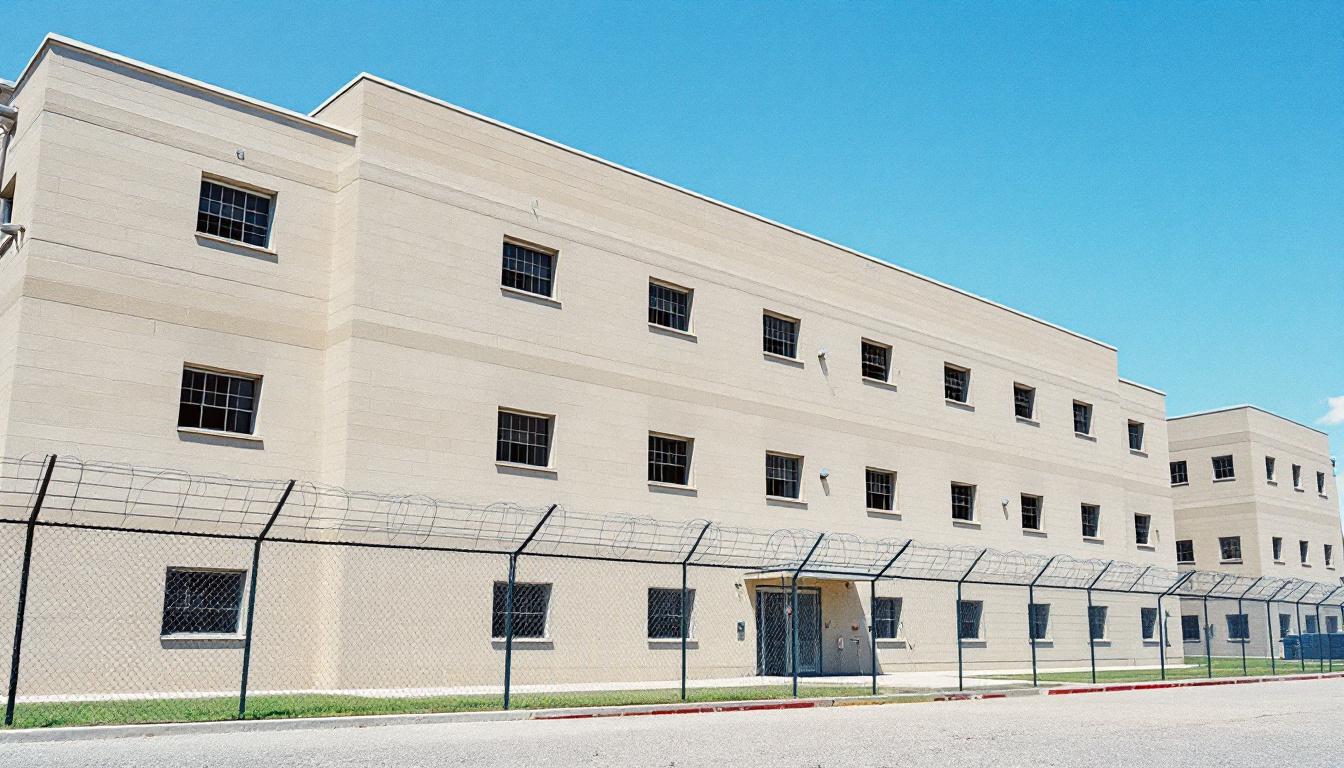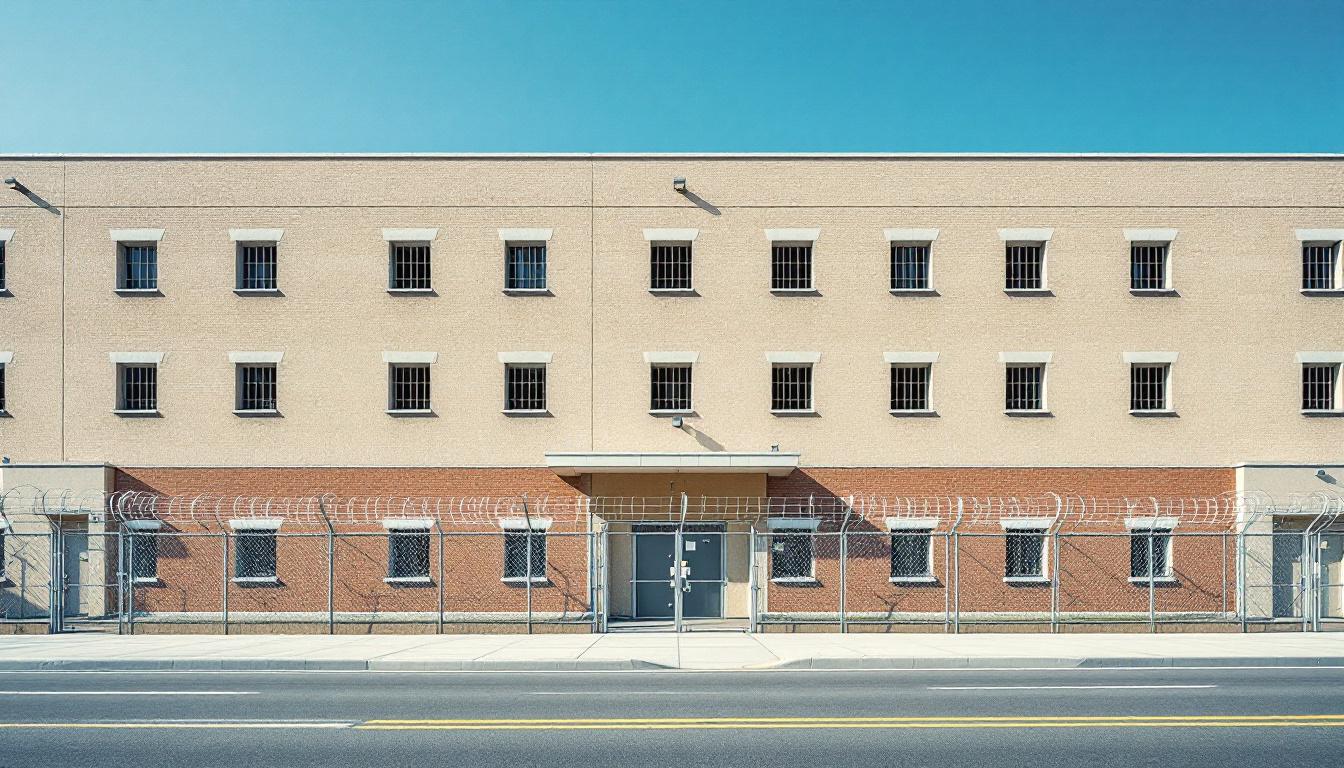
Quick Navigation
How to contact an inmate at Lopez State Jail
This comprehensive guide will walk you through how to connect with an inmate at Lopez State Jail. Follow the steps below to find an inmate and send letters and photos:
- Search for the inmate using our search tool below
- Create your account or log in to Penmate
- Write your message (up to 6,000 characters)
- Send instantly - inmates receive printed copies daily
Find an Inmate
Search for an inmate to start communicating today
Tip: You can search by first name, last name, or inmate ID number
To contact a person at Lopez State Jail start by searching for the person on the official facility website. Perform a search by following these steps:
- Step 1: Enter their first name and last name into the search form and click "Search"
- Step 2: Locate their inmate record
- Step 3: Write down their Inmate ID and any housing information provided
Important! Be sure to enter the person's full name. Nicknames should not be used.
How to Send Messages to Inmates

You can use your phone or computer to send emails, letters, and photos to an inmate. Messages are sent electronically to inmate tablets or kiosks at the facility. If you would like to send a message, start by searching for an inmate at Lopez State Jail.
Sending Photos and Postcards

A great way to send love and support to a loved one at Lopez State Jail is to send photos and postcards. It only takes a few minutes to send photos from your phone and it makes a huge difference. You can also mail postcards with words of support and inspiration, or design your own postcard for special moments like birthdays and holidays.
Important! Be sure not to send any explicit photos or they may not be approved by the facility. You can also use a photo printing app like Penmate to make sure your photos are printed at the correct size (4x6 or 3x5) and are mailed according to the rules and regulations of Lopez State Jail.
Frequently asked questions about Lopez State Jail
-
How long does it take to deliver a message?
If you're sending an email message your letter is usually delivered within 24-48 hours. For messages sent via mail you should expect delivery within 3-7 days. All messages will need be approved by Lopez State Jail.
-
How much does it cost to send a message to Lopez State Jail?
You can send a message free using your phone or mail a message via USPS for the price of a $0.60 stamp and envelope. You can also purchase credits or e-stamps from services starting at $1.99.
-
What services can I use to contact an inmate at Lopez State Jail?
Penmate
You can use Penmate to send letters and photos to an inmate from your phone. It's an easy way to stay in touch during your loved one's incarceration. Use the inmate locator to find an inmate's location and contact information, then you can send messages within a few minutes.
Securus messaging
Securus may be another option for communicating with an inmate at Lopez State Jail. You can create a friends and family account and purchase credits to send messages. All messages will be reviewed and must be approved by the facility.
JPay
Some county jails and state prisons may support sending messages with JPay. You must register an account with the system, find your loved one, and purchase stamps to send messages. For some locations you can also attach photos.
Smart Jail Mail
You may also check if Smart Jail Mail is available at Lopez State Jail. Smart Jail Mail is operated by Smart Communications and has contracted with some state and county jails. After purchasing credits, your messages and photos are sent to the facility, printed out, and then handed out to your loved one.
-
What is the mailing address of Lopez State Jail?
Mailing address:
Lopez State Jail
1203 E El Cibolo Rd
Edinburg, TX 78542
Phone: (956) 316-3810Business hours:
- Monday: Open 24 hours
- Tuesday: Open 24 hours
- Wednesday: Open 24 hours
- Thursday: Open 24 hours
- Friday: Open 24 hours
- Saturday: Open 24 hours
- Sunday: Open 24 hours
-
What are the visiting hours at Lopez State Jail?
Visiting hours at Lopez State Jail vary by housing unit and security level. Generally, visits are scheduled on weekends and holidays, with some facilities offering weekday visits. Contact the facility directly at (956) 316-3810 or check their website for the current visiting schedule. Visits typically last 30-60 minutes and must be scheduled in advance.
-
What items are prohibited when sending mail to Lopez State Jail?
Prohibited items typically include: cash, personal checks, stamps, stickers, glitter, glue, tape, staples, paperclips, polaroid photos, musical or blank greeting cards, hardcover books, magazines with staples, and any items containing metal or electronics. Only send letters on plain white paper with blue or black ink. Photos must be printed on regular photo paper (no Polaroids). Always check with Lopez State Jail for their specific mail policies.
-
How do I send money to an inmate at Lopez State Jail?
You can send money to an inmate at Lopez State Jail through several methods: 1) Online using JPay, Access Corrections, or the facility's approved vendor, 2) Money orders mailed directly to the facility with the inmate's name and ID number, 3) Kiosks located in the facility lobby, or 4) Over the phone using a credit or debit card. Fees vary by method, typically ranging from $2.95 to $11.95 per transaction.
-
Can I schedule a video visit with an inmate at Lopez State Jail?
Many facilities now offer video visitation as an alternative to in-person visits. At Lopez State Jail, video visits may be available through services like Penmate, Securus Video Connect, GTL, or ICSolutions. Video visits typically cost $10-20 for 20-30 minutes and must be scheduled in advance. You'll need a computer or smartphone with a camera and reliable internet connection. Contact the facility for their specific video visitation policies and approved vendors.
-
What identification do I need to visit an inmate at Lopez State Jail?
All visitors must present valid government-issued photo identification such as a driver's license, state ID, passport, or military ID. Minors must be accompanied by a parent or legal guardian who can provide the minor's birth certificate. Some facilities require visitors to be on the inmate's approved visitation list, which may require a background check. Contact Lopez State Jail for specific ID requirements and visitor approval procedures.
-
How can I find out an inmate's release date?
To find an inmate's release date at Lopez State Jail, you can: 1) Use the online inmate search tool if available, 2) Call the facility's records department, 3) Contact the inmate's case manager or counselor, or 4) Have the inmate provide this information during a call or visit. For privacy reasons, some facilities only release this information to immediate family members.
Facility Overview
Official Website
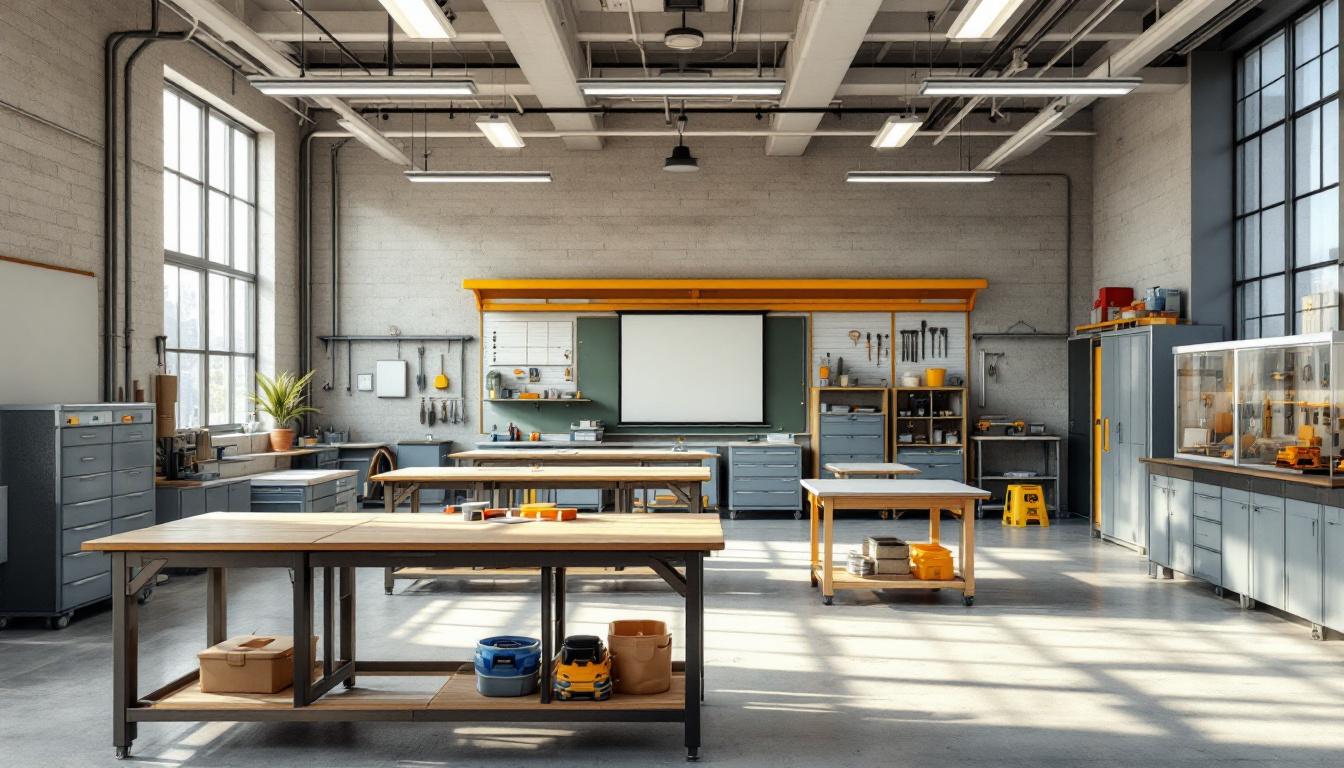
About Lopez State Jail
Nestled within the sprawling metropolitan landscape of Dallas, Texas, the Lopez Unit operates as a vital component of the state's correctional infrastructure, dedicated to guiding residents through structured pathways toward successful community reintegration. This TX correctional facility serves the greater Dallas area by implementing comprehensive programming designed to address the multifaceted challenges individuals face as they work toward rebuilding their lives and preparing for eventual release.
The facility's approach to residents services typically emphasizes skill development and personal growth through various educational and vocational opportunities that may include literacy programs, job training initiatives, and substance abuse counseling. Staff members generally work with residents to develop individualized plans that address specific needs and goals, fostering an environment where personal accountability and positive behavioral changes can take root. The rehabilitation process often incorporates life skills workshops, anger management courses, and cognitive behavioral programming designed to help residents develop the tools necessary for successful reentry into Dallas-area communities.
Through its commitment to systematic reintegration support, the Lopez Unit functions as more than a correctional facility—it serves as a bridge between incarceration and community life. The programming structure typically includes pre-release planning services that may connect residents with local Dallas resources, housing assistance programs, and employment placement support. This process-oriented approach recognizes that successful reintegration requires careful preparation and ongoing support, helping residents navigate the transition from institutional life back to productive participation in Texas communities.
Programs & Services
Vocational training initiatives at LOPEZ UNIT form the cornerstone of a comprehensive rehabilitation framework designed to equip residents with marketable skills and sustainable career pathways. The facility's approach emphasizes practical skill development through hands-on learning experiences that mirror real-world workplace environments. These carefully structured initiatives typically focus on building both technical competencies and professional behaviors, ensuring residents develop the confidence and capabilities necessary for successful community reintegration.
Educational and vocational opportunities may deliver specialized training across multiple industry sectors, with residents often participating in programs that develop expertise in high-demand fields. The vocational training component typically includes comprehensive instruction that combines theoretical knowledge with practical application, allowing participants to master both fundamental concepts and advanced techniques. Moreover, work programs provide residents with structured employment experiences that reinforce professional development while contributing to facility operations, creating an environment where skill-building occurs through meaningful engagement and productive activity.
Support services and therapeutic initiatives encompass a diverse range of offerings designed to address the multifaceted needs of the resident population. Faith-based initiatives often provide spiritual guidance and community connection opportunities, while specialized services such as janitorial training and printing operations may offer residents valuable technical skills alongside work experience. Transitional planning services typically focus on preparing residents for successful reentry by addressing housing, employment, and community support needs, ensuring that the foundation established through various initiatives continues to support long-term success beyond the facility's walls.
Daily Life & Visitation
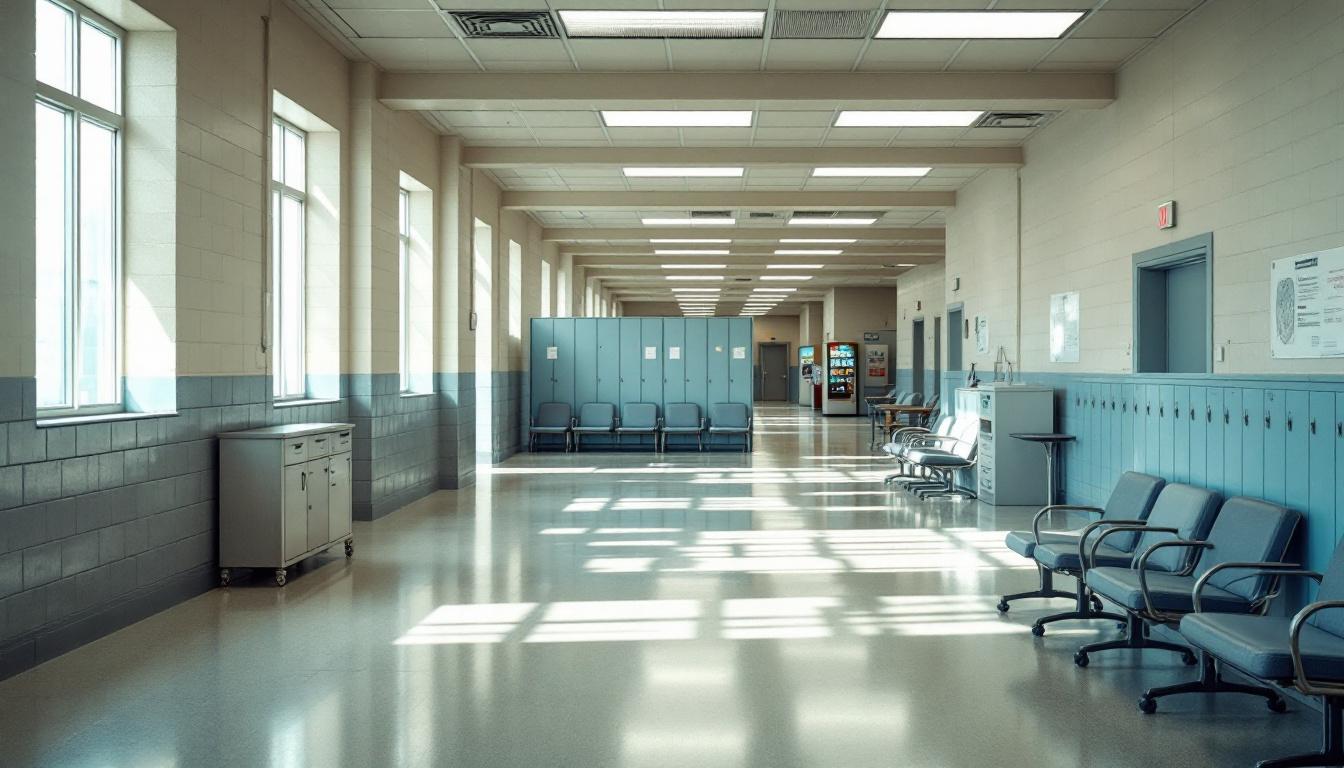
The steady rhythm of count times, meal periods, and scheduled activities delivers a predictable framework that residents at Lopez Unit rely upon each day. Today's routine mirrors yesterday's and tomorrow's, with residents consistently moving through structured programming that begins with early morning wake-up calls and extends through evening hours. This unwavering schedule typically includes designated times for meals, work assignments, educational programs, and recreational activities, creating an environment where residents generally know what to expect and when to expect it.
Living accommodations at the facility usually consist of shared housing units where residents maintain personal spaces within dormitory-style or cell-based arrangements. The dining experience generally takes place in communal areas where residents receive three meals daily, often featuring a rotating menu that aims to provide balanced nutrition. Moreover, residents typically have access to recreational opportunities that may include outdoor exercise periods, indoor fitness activities, and various sports programs, allowing them to maintain physical health while adhering to the facility's structured timeline.
Programming schedules deliver educational classes, vocational training, and counseling sessions that residents often participate in based on their individual needs and custody classifications. Whereas daily routines remain consistent, residents usually have opportunities to connect with family members through scheduled visitation periods and telephone privileges, which typically operate within established guidelines. Work assignments generally provide residents with purposeful activities that may include kitchen duties, maintenance tasks, or facility operations support, contributing to both personal development and institutional functioning while maintaining the overall structure that defines daily life at the unit.
Ready to Connect?
Start communicating with your loved one today
Search for an Inmate
